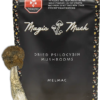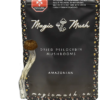When my father was diagnosed with a terminal illness, our family was thrust into a whirlwind of uncertainty, fear, and sadness. He had always been a vibrant, curious man with an insatiable zest for life. But as the weight of his diagnosis settled in, I watched that light in his eyes dim, replaced by an overwhelming sense of dread.
While conventional treatments managed his physical symptoms, they did little to address the emotional turmoil he faced. He struggled with questions about the meaning of his life, the legacy he would leave behind, and the inevitability of death.
At first, we turned to traditional methods of emotional support, such as counseling and spiritual guidance, but these only scratched the surface of his existential despair. It was heartbreaking to witness someone I loved deeply grappling with such profound suffering.
It wasn’t until I stumbled upon the growing body of research on psilocybin therapy that we found a glimmer of hope. Hesitant but desperate for relief, my father agreed to try it, and the results were nothing short of extraordinary.
During his guided psilocybin session, he experienced what he later described as a journey through his life’s most meaningful moments, an overwhelming sense of connection to the universe, and a profound acceptance of his mortality.
The change in him was almost immediate—he seemed lighter, more at peace, and even joyful. For the first time in months, he spoke about his fears openly, not with despair, but with a sense of calm and clarity.
His experience with psychedelic-assisted therapy not only transformed his final months but also altered my perspective on how we approach terminal illness. I came to realize that while traditional medicine focuses on extending life, it often neglects the quality of that life, especially when facing its inevitable end.
Psychedelics offered my father—and our family—a chance to confront the profound truths of his condition with grace, meaning, and love.
This personal journey opened my eyes to the immense potential of psychedelics in supporting individuals with terminal illnesses. Their ability to ease existential anxiety, foster emotional healing, and inspire spiritual insights is not just revolutionary—it’s a vital tool for those seeking peace in life’s most challenging chapter.
As we explore the benefits and applications of psychedelics for terminal illness, I hope to illuminate the profound ways they can transform the end-of-life experience.
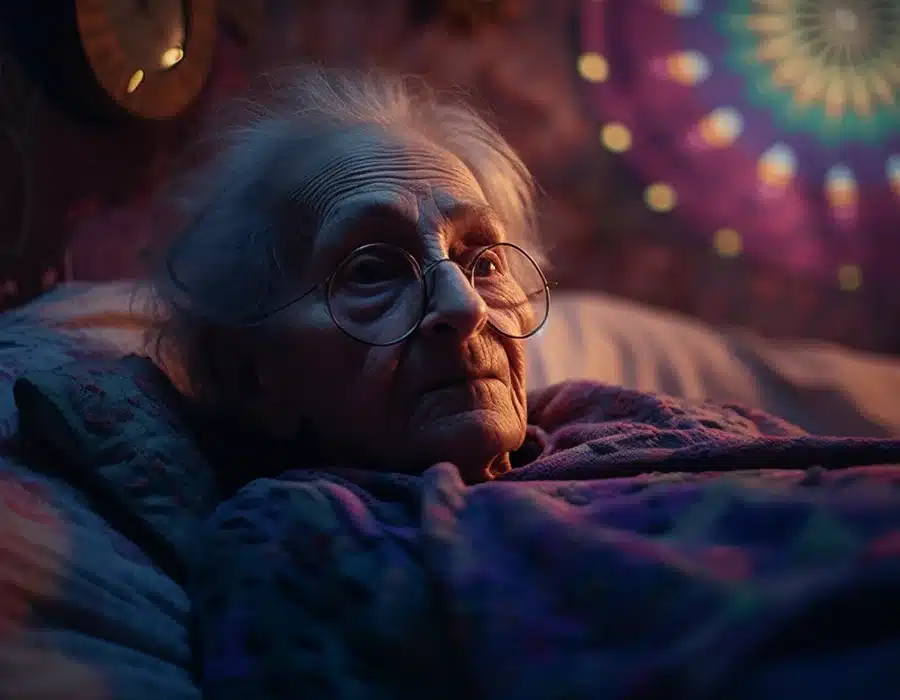
What Are Psychedelics?
Psychedelics are a fascinating class of substances that have captured humanity’s curiosity for centuries. Derived from plants, fungi, and synthetically produced compounds, these substances have profound effects on perception, cognition, and emotion.
But what exactly are psychedelics, and why are they gaining attention in the context of terminal illness? To fully appreciate their potential, let’s delve into their origins, how they work, and the renewed interest in their therapeutic applications.
The Nature and History of Psychedelics
Psychedelics, also known as hallucinogens, are substances that alter the way we perceive reality. They can create vivid sensory experiences, distort time and space, and induce deeply introspective or spiritual states.
While the term “psychedelics” often brings to mind well-known substances like psilocybin (found in magic mushrooms like Melmac), LSD, and MDMA, the category also includes mescaline (from peyote cactus) and DMT (a compound in ayahuasca).
Historically, indigenous cultures have used psychedelics for thousands of years in spiritual and healing rituals. For example, psilocybin mushrooms were integral to religious ceremonies in Mesoamerican societies, often seen as a way to communicate with divine forces.
Similarly, ayahuasca—a plant-based brew from the Amazon—has long been used by shamans for physical and emotional healing. These ancient practices highlight psychedelics’ deep connection to human spirituality and their potential as tools for transformation.
How Psychedelics Work in the Brain
Modern neuroscience has begun to uncover how psychedelics affect the brain, shedding light on their profound effects. These substances primarily interact with serotonin receptors, particularly the 5-HT2A receptor, which plays a significant role in mood regulation, perception, and cognitive flexibility.
By stimulating these receptors, psychedelics create a temporary state of enhanced neural connectivity, often described as a “reset” for the brain.
This increased connectivity can disrupt rigid thought patterns, allowing individuals to approach problems or emotions from new perspectives. For those facing terminal illness, this ability to break free from cycles of fear, despair, or hopelessness can be life-changing.
Psychedelics also reduce activity in the brain’s default mode network (DMN), the area responsible for self-referential thinking and rumination. A quieter DMN often leads to feelings of unity, peace, and a sense of connection to something greater—a perspective that is particularly valuable for those grappling with mortality.
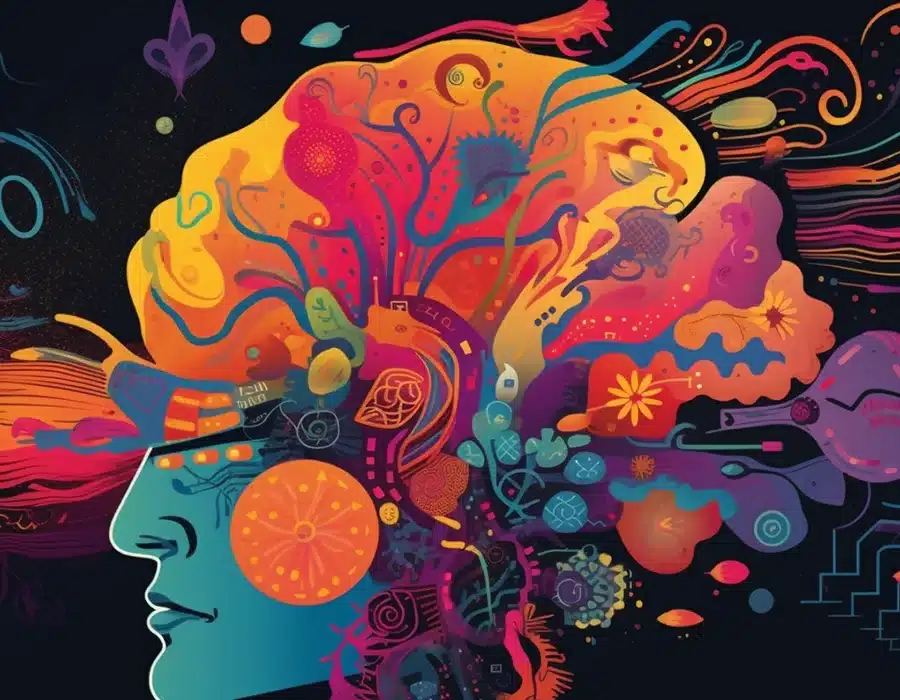
Psychedelics in Modern Medical Research
Although stigmatized for much of the 20th century due to prohibition and misconceptions, psychedelics are experiencing a renaissance in medical research.
Scientists and clinicians are exploring their potential to treat various mental health conditions, including depression, PTSD, addiction, and, notably, end-of-life anxiety in terminally ill patients.
Landmark studies, such as those conducted at Johns Hopkins University and New York University in 2016, have demonstrated the efficacy of psilocybin therapy in reducing existential distress among terminally ill individuals.
Participants reported significant decreases in anxiety and depression, along with a renewed sense of purpose and spiritual connection. These findings have sparked a wave of clinical trials and a growing interest in integrating psychedelics into palliative care settings.
The Resurgence of Psychedelic-Assisted Therapy
Psychedelic-assisted therapy is not just about the substances themselves but also the structured, supportive environment in which they are administered.
During a therapeutic session, patients are guided by trained professionals who help them navigate their experiences. This approach ensures that the benefits of psychedelics are maximized while minimizing potential risks, such as overwhelming emotions or distressing visions.
As research progresses, psychedelics are being hailed as a paradigm shift in how we approach mental health and end-of-life care.
They represent a holistic alternative to conventional treatments, addressing not just physical symptoms but also the emotional and spiritual dimensions of terminal illness.
Understanding psychedelics is the first step toward appreciating their potential to transform the way we support individuals facing life’s final chapter.
By bridging ancient wisdom with cutting-edge science, these substances offer a profound opportunity to redefine what it means to find peace, meaning, and connection in the face of mortality.
Addressing Existential Anxiety in Terminal Illness
A terminal diagnosis often brings more than physical pain. It carries an emotional weight that can feel unbearable.
Patients frequently grapple with existential dread, depression, and an overwhelming fear of death. These emotions are deeply human but often overlooked by conventional treatment approaches, which focus more on managing symptoms than addressing the mind’s turmoil.
Psychedelics, particularly psilocybin, have shown promise in filling this gap. In groundbreaking studies conducted by NYU and Johns Hopkins in 2016, terminally ill patients reported dramatic reductions in anxiety and depression after a single psilocybin therapy session.
These individuals described feelings of peace, acceptance, and a newfound ability to engage with their remaining time meaningfully. The profound emotional shifts were not fleeting, with many patients reporting sustained benefits months later.
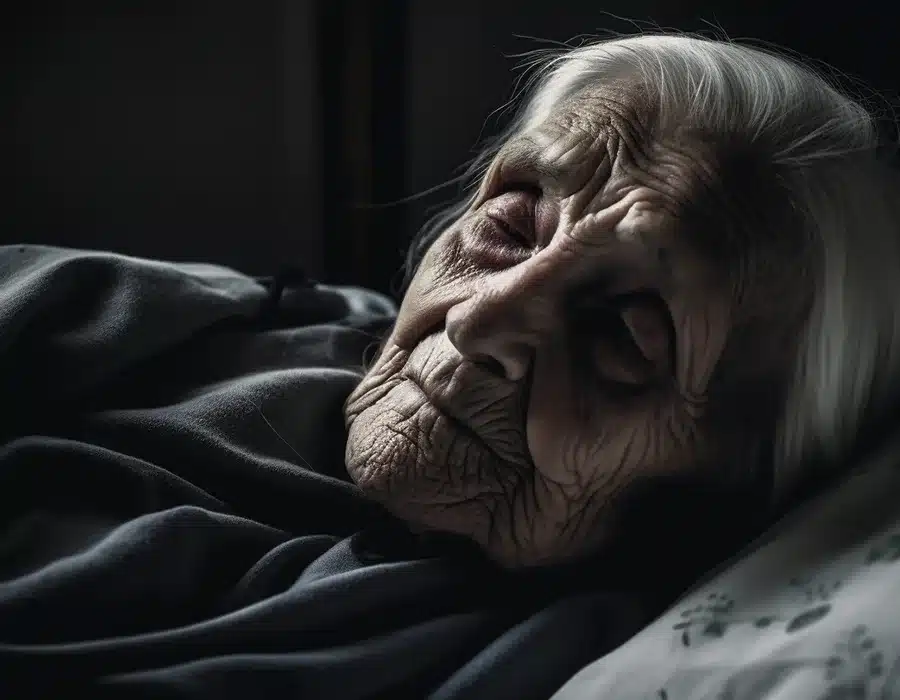
Psychedelics in Modern Medical Research
Although stigmatized for much of the 20th century due to prohibition and misconceptions, psychedelics are experiencing a renaissance in medical research.
Scientists and clinicians are exploring their potential to treat various mental health conditions, including depression, PTSD, addiction, and, notably, end-of-life anxiety in terminally ill patients.
Landmark studies, such as those conducted at Johns Hopkins University and New York University in 2016, have demonstrated the efficacy of psilocybin therapy in reducing existential distress among terminally ill individuals.
Participants reported significant decreases in anxiety and depression, along with a renewed sense of purpose and spiritual connection. These findings have sparked a wave of clinical trials and a growing interest in integrating psychedelics into palliative care settings.
The Resurgence of Psychedelic-Assisted Therapy
Psychedelic-assisted therapy is not just about the substances themselves but also the structured, supportive environment in which they are administered. During a therapeutic session, patients are guided by trained professionals who help them navigate their experiences.
This approach ensures that the benefits of psychedelics are maximized while minimizing potential risks, such as overwhelming emotions or distressing visions.
As research progresses, psychedelics are being hailed as a paradigm shift in how we approach mental health and end-of-life care.
They represent a holistic alternative to conventional treatments, addressing not just physical symptoms but also the emotional and spiritual dimensions of terminal illness.
Understanding psychedelics is the first step toward appreciating their potential to transform the way we support individuals facing life’s final chapter.
By bridging ancient wisdom with cutting-edge science, these substances offer a profound opportunity to redefine what it means to find peace, meaning, and connection in the face of mortality.
Addressing Existential Anxiety in Terminal Illness
A terminal diagnosis often brings more than physical pain. It carries an emotional weight that can feel unbearable.
Patients frequently grapple with existential dread, depression, and an overwhelming fear of death. These emotions are deeply human but often overlooked by conventional treatment approaches, which focus more on managing symptoms than addressing the mind’s turmoil.
Psychedelics, particularly psilocybin, have shown promise in filling this gap. In groundbreaking studies conducted by NYU and Johns Hopkins in 2016, terminally ill patients reported dramatic reductions in anxiety and depression after a single psilocybin therapy session.
These individuals described feelings of peace, acceptance, and a newfound ability to engage with their remaining time meaningfully. The profound emotional shifts were not fleeting, with many patients reporting sustained benefits months later.
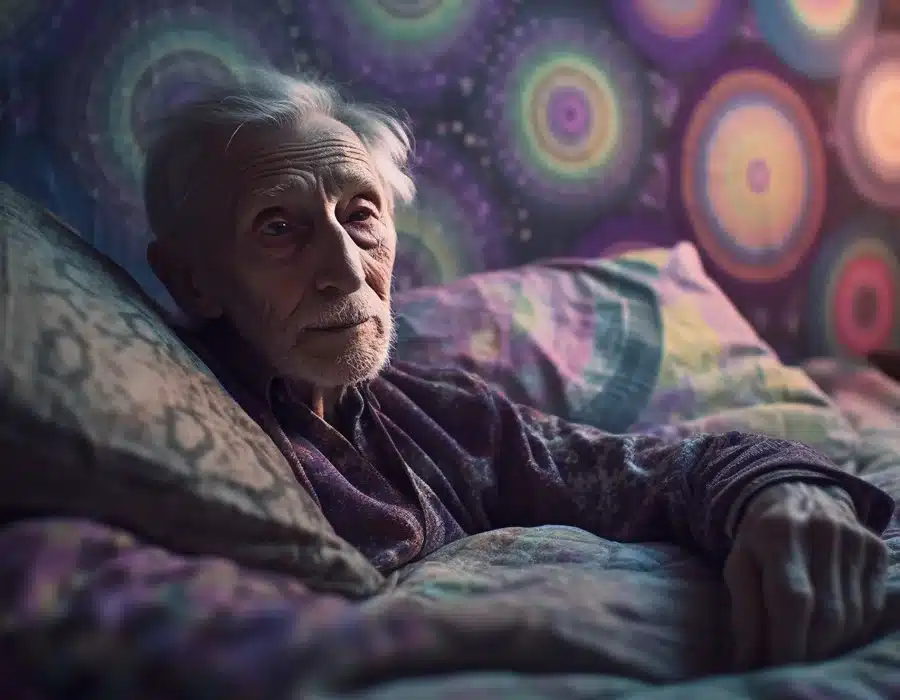
Spiritual Insights and Connection
Psychedelics often induce deeply spiritual experiences, characterized by feelings of unity, interconnectedness, and love. For terminally ill patients, these experiences can be profoundly comforting, easing the fear of death and fostering a sense of purpose.
Such spiritual revelations often help patients transcend the physical realities of their condition, focusing instead on their connection to something greater than themselves.
Whether interpreted as a divine presence, universal consciousness, or a deep bond with nature, these insights provide a sense of peace and acceptance that is both liberating and healing.
Support for Loved Ones
The benefits of psychedelics extend beyond the individual, positively impacting their loved ones as well. When patients find emotional clarity and peace, they are better able to engage meaningfully with their family and friends.
This improved communication can lead to heartfelt conversations, forgiveness, and shared moments of love and understanding.
Family members often report that the patient’s transformation helps them cope with their own grief and emotional struggles.
By fostering an environment of connection and closure, psychedelic therapy not only supports the patient but also strengthens their relationships during an intensely emotional period.
Psychedelics offer a multidimensional approach to care that addresses the often-overlooked emotional and spiritual challenges of terminal illness.
These substances, when used responsibly and in the right therapeutic settings, have the potential to profoundly transform the end-of-life experience for both patients and their loved ones.
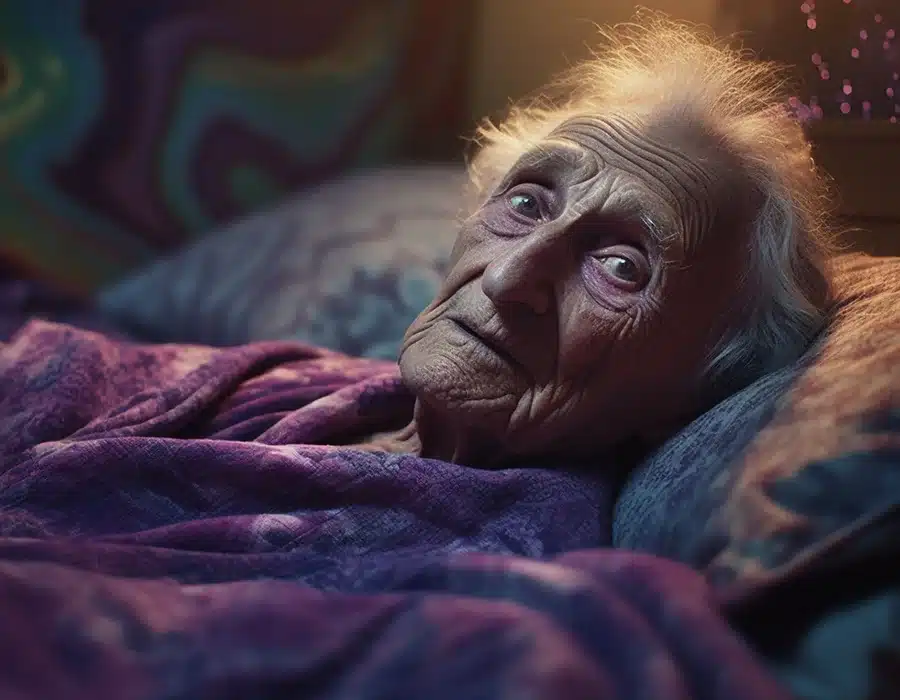
Integration of Psychedelics and Holistic Care
While psychedelics offer remarkable benefits, they are most effective when integrated into a broader framework of care. Therapy sessions guided by trained professionals ensure that patients process their experiences in a safe and constructive manner.
Complementing this with mindfulness practices, spiritual counseling, or palliative care creates a comprehensive approach that addresses both mind and body.
Subtle Reference to Microdosing
For individuals who may not be ready for a full psychedelic journey, microdosing presents an intriguing alternative. This practice involves taking sub-perceptual doses of psychedelics to enhance mood and emotional resilience.
While microdosing is not a cure for terminal illness-related anxiety, it can provide subtle support, helping patients navigate their emotions with greater clarity and calm.
Ethical Considerations and Hope for the Future
The use of psychedelics in terminal care raises important ethical considerations. It is crucial that these therapies are administered under professional guidance, ensuring safety and efficacy.
Ongoing research is vital to refine protocols and broaden access, particularly as interest in psychedelic-assisted therapy grows.
The future of psychedelics for terminal illness is bright. As more studies validate their benefits, we are moving closer to a world where these substances are a standard part of compassionate, end-of-life care.
They offer hope, not just for patients but for their families and caregivers, promising a more dignified and meaningful final chapter.
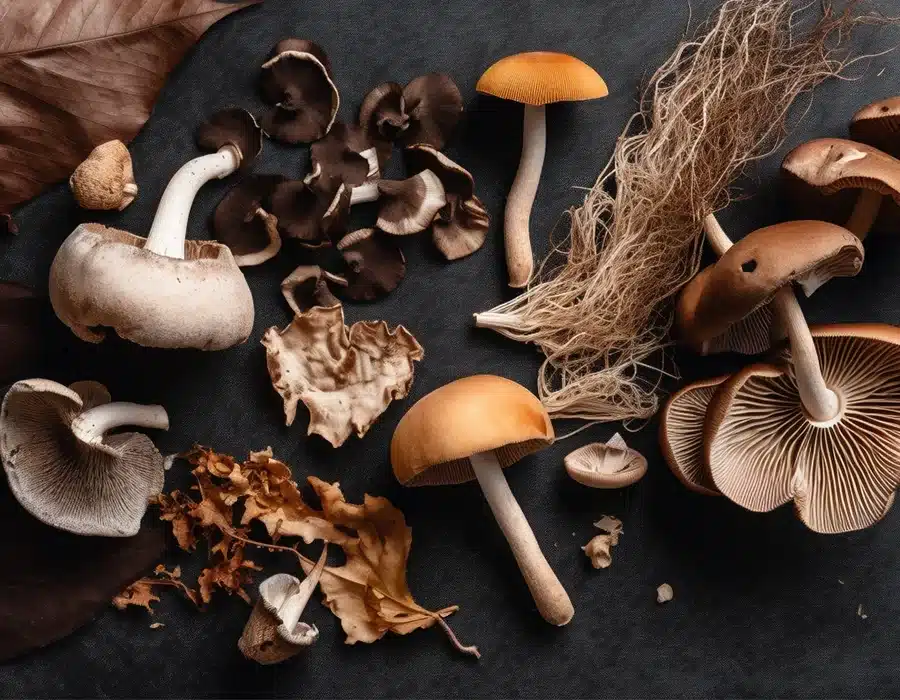
Experience Peace and Healing with Magic Mush
Facing a terminal illness can feel like navigating uncharted waters, filled with fear, uncertainty, and emotional weight. Psychedelics have emerged as a beacon of hope, offering relief from existential anxiety, depression, and the mental toll of such diagnoses.
As discussed, substances like psilocybin have shown remarkable potential to foster peace, acceptance, and a profound connection to life’s natural cycles. These therapies not only enhance the quality of life for patients but also nurture meaningful moments with their loved ones.
This transformative approach integrates seamlessly into holistic care, providing a safe and guided environment for patients to explore these benefits.
From alleviating emotional distress to fostering spiritual insights, psychedelics are reshaping how we approach end-of-life care.
For those seeking to reframe their final chapter with dignity and meaning, psychedelic-assisted therapy offers a promising path forward.
At Magic Mush, we are committed to helping you discover the therapeutic potential of magic mushrooms in a safe, informed, and supportive environment.
As a trusted provider of premium magic mushrooms in California, we prioritize education, rigorous quality standards, and the destigmatization of psychedelics. Our resources and expert team are here to guide you every step of the way, ensuring your journey is both transformative and secure.
Whether you’re exploring magic mushrooms for therapeutic purposes or simply curious about their potential, Magic Mush is your partner in this enlightening journey.
Our seamless online shopping experience, privacy-first policies, and exceptional customer service make us the preferred choice for Canadians seeking high-quality psilocybin products.
With locations in California and Washington, we are proud to serve communities across the country, fostering understanding and trust.
Join the growing community of individuals unlocking the healing power of magic mushrooms with Magic Mush. Visit our website to explore our extensive product range, learn more about safe usage, or connect with our experts.
Together, let’s challenge biases and pave the way for a more compassionate and holistic approach to life’s challenges. Let Magic Mush be your trusted partner in discovering the possibilities of psychedelics.
